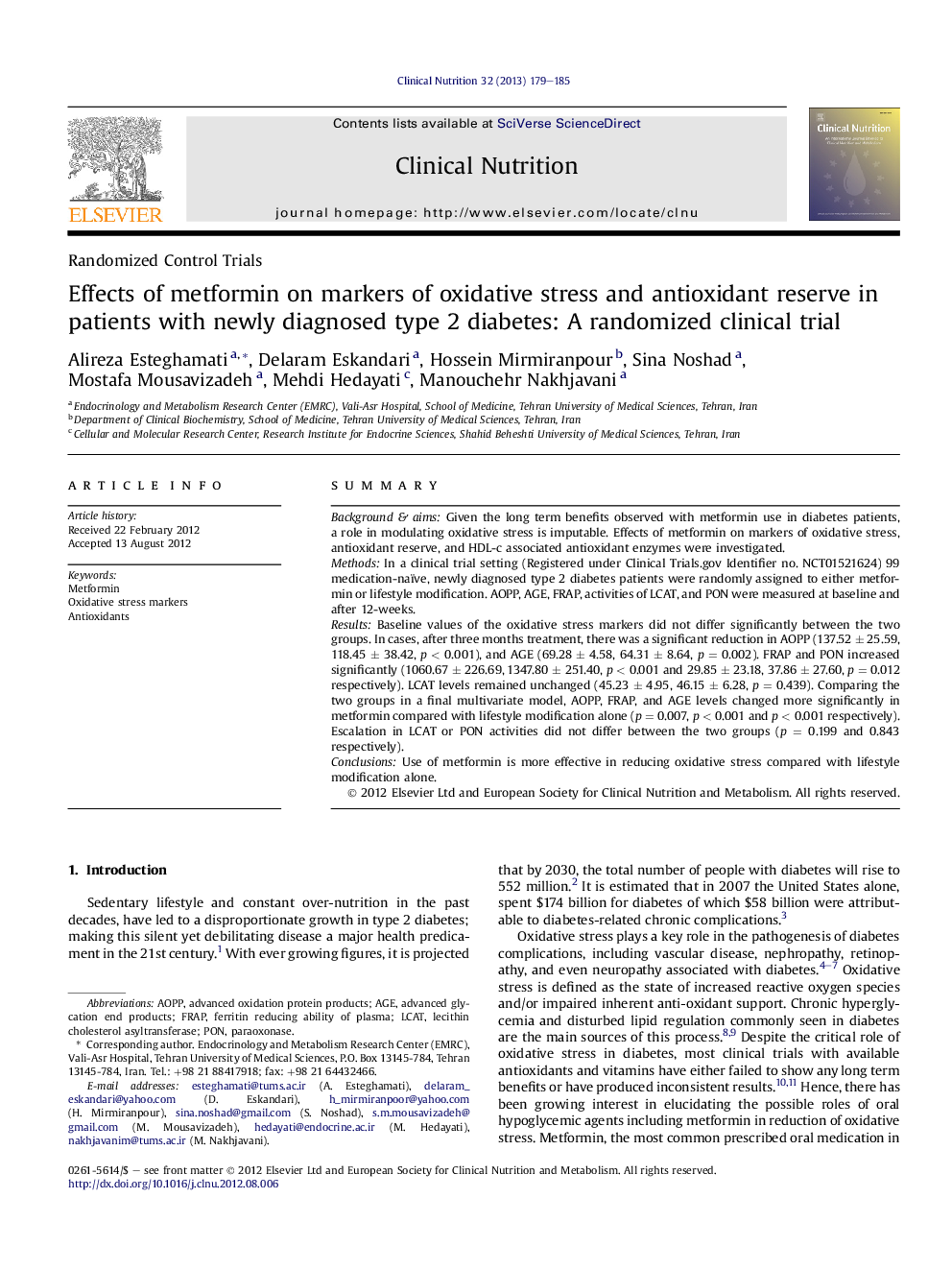| Article ID | Journal | Published Year | Pages | File Type |
|---|---|---|---|---|
| 2689738 | Clinical Nutrition | 2013 | 7 Pages |
SummaryBackground & aimsGiven the long term benefits observed with metformin use in diabetes patients, a role in modulating oxidative stress is imputable. Effects of metformin on markers of oxidative stress, antioxidant reserve, and HDL-c associated antioxidant enzymes were investigated.MethodsIn a clinical trial setting (Registered under Clinical Trials.gov Identifier no. NCT01521624) 99 medication-naïve, newly diagnosed type 2 diabetes patients were randomly assigned to either metformin or lifestyle modification. AOPP, AGE, FRAP, activities of LCAT, and PON were measured at baseline and after 12-weeks.ResultsBaseline values of the oxidative stress markers did not differ significantly between the two groups. In cases, after three months treatment, there was a significant reduction in AOPP (137.52 ± 25.59, 118.45 ± 38.42, p < 0.001), and AGE (69.28 ± 4.58, 64.31 ± 8.64, p = 0.002). FRAP and PON increased significantly (1060.67 ± 226.69, 1347.80 ± 251.40, p < 0.001 and 29.85 ± 23.18, 37.86 ± 27.60, p = 0.012 respectively). LCAT levels remained unchanged (45.23 ± 4.95, 46.15 ± 6.28, p = 0.439). Comparing the two groups in a final multivariate model, AOPP, FRAP, and AGE levels changed more significantly in metformin compared with lifestyle modification alone (p = 0.007, p < 0.001 and p < 0.001 respectively). Escalation in LCAT or PON activities did not differ between the two groups (p = 0.199 and 0.843 respectively).ConclusionsUse of metformin is more effective in reducing oxidative stress compared with lifestyle modification alone.
